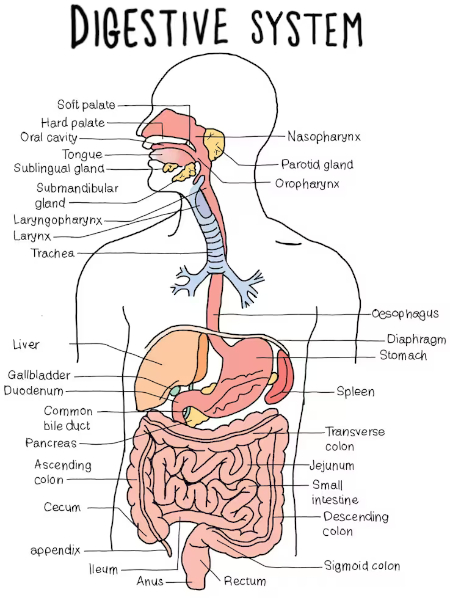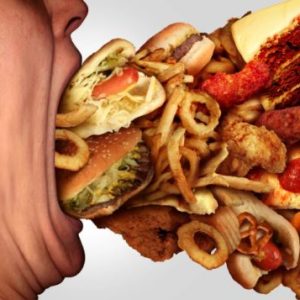Dear, darling, beloved… and occasionally annoying Sister Erin recently dropped a disturbing post she’d found on me. On the topic of digestion. I was at first repelled by the notion of discussing what happens to food after it goes ‘down the gullet’…

Over the lips, and through the gums…
… Look out, stomach! Here she comes! It’s an old saying, and a fun one. (And the one my Dad most liked using when asked to say ‘grace’ at the dinner table. But that’s beside the point.) And it commemorates the boundary between ‘eating’ and ‘digesting’.
I’ve considered my reporting domain to be defined as ‘all things food, up to the time you swallow’. But now, on reflection, I think it’s time we undertook a voyage of exploration down the Alimentary Canal…
Setting the scene
When you swallow a mouthful of food – known clinically as a ‘bolus‘ – it slides down the esophagus into your stomach. Once there, it’s not supposed to come back up again. There’s a sphincter, or ‘valve’ muscle, at the top of the stomach to ensure that. You don’t want harsh stomach acids and enzymes leaking back up your gullet. But it occasionally happens. That’s what we call ‘heartburn’, and at its worst, ‘reflux’.
Once in the stomach, as we’ve hinted, the already moistened and chewed food is subjected to strong acids and other substances that break it down into a semi-liquid state. From there, the food ‘slurry’ flows through another sphincter into the upper, or small intestine. There, other digestive compounds are added, notably from the spleen, the gall bladder and the pancreas.
“As food passes through the GI tract, it mixes with digestive juices, causing large molecules of food to break down into smaller molecules,” the pertinent page at the US National Institutes for Health website explains. “The body then absorbs these smaller molecules through the walls of the small intestine into the bloodstream, which delivers them to the rest of the body.”
After that, it’s all ‘downhill’
Which is to say, we’re now talking about ‘elimination’, rather than ‘ingestion’. Simply (and as delicately as possible) put the next stop is the large intestine, or colon. That’s where the solid and liquid waste materials are separated. The liquids go to the bladder, and the solids pass through the colon, and… out.
The nitty gritty
We often hear about the gut microbiome, and the intricate process that take place within it, ‘breaking down the large molecules into smaller ones’. That’s, essentially, the first step in metabolizing the nutrients derived from our food. And that intense chemical and enzymatic process takes place in the small intestine.
It’s there that the anti-oxidants, polyphenols and other bio-active compounds do their good work. They basically keep the small intestine in good working order. If they fail in their task, or we don’t consume enough of them or their precursors, we end up with metabolic disorder and inflammation. And our digestive functions are impaired. Need I say, that’s really bad?
The bottom line
There’s a lot more to digestion than we are aware of in our daily lives. The gut, as the system is collectively called, works non-stop, day and night. And we only become aware of it when something goes wrong. Heartburn. Reflux. Cramps. Constipation. Diarrhea. To cite just a few of the conditions we charmingly group under the heading ‘tummy upsets’.
My take
We really need to be more aware of our digestive systems. With a little forethought, we can avoid behaviours that cause them to labour or malfunction. Don’t overeat. Don’t overdo alcohol, spicy foods or heavy (dense) foods (like cheese or bread). Stay well hydrated. That’ll help keep the food material flowing smoothly through the digestive canal. And be sure you get a good variety of foods. You need mechanical and dietary fibre and other food constituents that aren’t actually nutrients to ensure the smooth functioning of the system.
All it takes to pay more respect to your digestive tract – and avoid the every-day upsets we all experience from time to time – is a little mindfulness before ordering, or reaching in to the fridge…
~ Maggie J.

